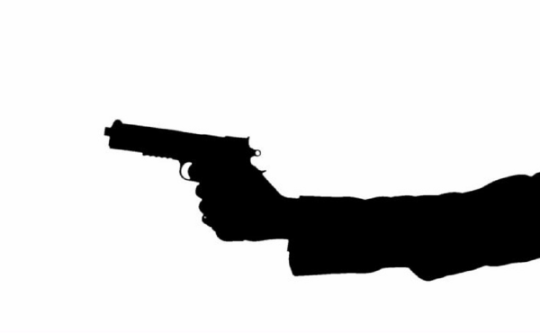No more Extra-judicial killings, please!
Tasmiah Nuhiya Ahmed | 07 September 2020
In a democratic society, the scope of the rule of law can always be the criterion for determining the standards of a country or a nation. In the post-independence period, Bangladesh has repeatedly stumbled upon the democratic system. The journey that Bangladesh took in its quest for the establishment of democracy, including the attainment of justice in society, has come down to the brink of extinction today.
In the period between January 2001- June 2020, according to Human Right organization Odhikar, there have been 4002 cases of extrajudicial killings by different law enforcement authorities. This year, up to June, 49 people were killed by RAB, 81 people were killed by Police, 1 person was killed by Army, 19 people were killed by BGB and 8 people were killed by DB Police. And the total figure stands at 158 (Source: http://odhikar.org/wp-content/uploads/2020/07/01_Statistics_EJK_2001-June-2020.pdf ).
Another right organization Ain O Salish Kendra has reported 85 cases in the first three months of 2020 (Source: Extrajudicial killing continues, even in COVID-19 time, New Age, 27 April 2020).
In 2019, the High Court, while hearing the matter of a murder suspect’s death after an arrest, the judges asked the lawyers, “Who will give an explanation over deaths in crossfires in police custody?”
I guess this has not been answered yet.
Extrajudicial killings came into the spotlight again after the July 31 killing of retired Major Sinha Mohammad Rashed Khan in a reported police firing in Teknaf of Cox’s Bazar. A majority of extrajudicial killings took place in Cox’s Bazar with most of them on the Marine Drive Road or near Teknaf’s Naf River, which marks the border of southeastern Bangladesh and western Myanmar.
Human rights defenders say Bangladesh's record for rights violations is continuously deteriorating after the formation of Rapid Action Battalion (RAB) in 2004 during the BNP led government. In 2016, the high court division of Bangladesh Supreme court declared that the Indemnity Act is illegal. Although the Awami League has always strongly opposed the formation of the RAB and the Indemnity Act, including Operation clean heart, but Bangladesh Awami League themselves started using RAB as a political tool after coming to the power in 2009. Even they aren’t caring about the high court’s rule regarding the Indemnity Act.
Human rights activists have been expressing concern over these killings. Protests against such killings are ongoing in various ways including statements. Even then, the killings continue despite all kinds of protests and condemnations.
What International Law says?
According to Article-11 of the Universal Declaration on Human Rights (UDHR), "all those charged with a criminal offense shall have the right to be presumed innocent until they have been found guilty by law in a public trial in which they have all the requisite safeguards for their defense."
Moreover, according to the article- 5 of UDHR- torture or to cruel, inhuman are prohibited. Where torture or inhumane treatment is prohibited, killing a person without due process is in no way acceptable. Because, killing in the crossfire is followed by torture and inhuman treatment. Bangladesh is nevertheless a signatory to many other human rights treaties like the ICESCR, the CRC, and so on.
How logical is it to kill someone without a trial where one cannot be called a criminal before proving a crime?
If the extra-judicial killings continue, the confidence of the common man in the justice system of the country will diminish. The first and fundamental responsibility of law enforcement agencies to gain people’s trust by ensuring the safety of the masses, but there are innumerable allegations that these law enforcement agencies are deeply involved in extra-judicial killing instead. Though the ruling party's political interests are the main reason behind such barbaric acts, there are a plethora of examples that the officials of law enforcement agencies are pursuing personal interests from extra-judicial killings even with political blessings, however; these need to be stopped right now.
What Constitutional safeguards we have?
Article 31 of the Constitution of Bangladesh states that, in particular no action detrimental to the life of any person shall be taken except in accordance with the law. Also, in Article 32, the law speaks of the freedom of life of the individual. In the aforementioned Articles, it is clear that the Constitution guarantees our right to the defense of the law and protection of the right to life and to personal liberty. It means the constitution of Bangladesh does not in any way support extrajudicial killings.
Who can decide?
No agency can decide who gets to live and who will die. In the eye of the law, everyone is innocent before they are proven guilty by the court. So, everyone has to realize that no one is guilty without any legal justification.
We need to ensure that in the future, no citizen dies in extra-judicial killings-- we need to stop extra-judicial killings immediately.
What needs to be done?
Accountability is needed in all sectors. If we cannot ensure this, and if it continues, then the question remains: How many people will be added to this list?
Finally, it can be said that extra-judicial killings can lead to the devastation of society and this contradicts the spirit of the Liberation War and the constitution. It’s high time we understand the same and act on that.
Tasmiah Nuhiya Ahmed is a Research Associate at Centre for Governance Studies and she is also an Advocate of Bangladesh Supreme Court.
Views in this article are author’s own and do not necessarily reflect CGS policy.
